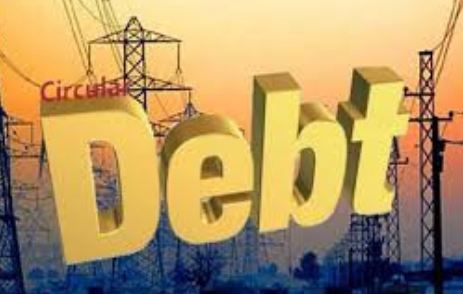ISLAMABAD, MAY 15 /DNA/ – Deliberate non-use or underutilization of the most efficient power plants, and continued payments to highly inefficient , outdated power plants are at the heart of Pakistan’s energy sector circular debt. High capacity payments, underutilized efficient capacity, and a lack of retirement policies for obsolete plants compound the issue, trapping Pakistan in a cycle of debt and decay.
Notable examples of obsolete and inefficiet power plants include the 1250 MW HUBCO Coal, 1250 MW Sahiwal Coal (HSR), and 1250 MW Port Qasim Coal power plants. Both HUBCO Coal and Port Qasim Coal plants have remained largely idle for the past two years, yet, these IPPs continue to claim capacity charges at at least 60% – even if they don’t produce a single unit.
Vested interest – a collusion between the public-private power sector actors – continues to exploit the lacunas to the detriment of Pakistan’s economy and to the disadvantage of poor consumers.
This is the crux of a comprehensive report by the independent Center for Research and Security Studies (CRSS) that sheds light on the longstanding yet urgent challenges facing Pakistan’s power sector and offers pragmatic solutions.
Titled “Circular Debt Reduction Is Possible In a Single Click to Save Pakistan from Financial Catastrophe and Destabilization,” and compiled by Engineer Arshad Abbasi, the report delves into the systemic issues plaguing the energy sector and presents a roadmap for sustainable reform.
Central to the report’s findings is the pervasive issue of circular debt, which has ballooned above Rs. 3,000 billion, posing a grave threat to the nation’s economic stability. This debt, fueled by unpaid subsidies , inefficiencies and systemic corruption within the distribution and production chain, underscores the pressing need for holistic reforms to alleviate financial strain and foster long-term sustainability.
“A significant factor contributing to the high cost of electricity, aside from inflated contracts with independent power producers (IPPs), is the deliberate non-use or underutilization of the most efficient power plants, while running highly inefficient , dated power plants which continue to worsen the situation,” the report says.
It also identifies the 1250 MW HUBCO Coal, 1250 MW Sahiwal Coal (HSR), and 1250 MW Port Qasim Coal power plants as examples of corruption and inefficiency.
Both HUBCO Coal and Port Qasim Coal plants have remained largely idle for the past two years, yet, these IPPs have claimed capacity charges at at least 60%.
The report highlights governance issues within entities like K-Electric, where inefficiencies and malpractices exacerbate the energy crisis, prompting questions about whether these entities symbolize fraud. Similar questions arise regarding the crushing policies and clauses of independent power producers (IPPs).
Once reliant on abundant hydroelectricity, Pakistan now leans heavily on imported oil, coal, and LNG-fired power plants. However, this transition has come at a steep cost, driving electricity prices upward and tethering the economy to external fuel sources.
The decline of hydropower, from a commanding 60% share in 1991 to a mere 29% today, underscores a regression in Pakistan’s energy landscape. The absence of major hydroelectric projects like the Kalabagh Dam has left the nation dependent on costly imported fuels, exacerbating financial strain.
Political controversies surrounding hydroelectric projects have further complicated the situation, highlighting the need for consensus-driven decision-making to ensure energy security and economic resilience.
The report recommends immediate retirement of inefficient power plants and the importance of adhering to international agreements such as the Paris Declaration. These reforms pave the way for a more sustainable and prosperous future, ensuring energy security for generations to come. Additionally, addressing corruption and implementing transparent policies and regulatory measures are crucial steps toward unlocking greater efficiency and equitable access to electricity in Pakistan, emphasizes author Abbasi, an engineer and energy expert also serves on the board of directors at CRSS.
While the report could as a valuable resource for informing decision-making on Pakistan’s energy crisis, Abbasi warns that without action from relevant institutions and international bodies like the UN, the implementation of these recommendations may be hindered.
“International organisations such as the UN and IMF – committed to green and efficient energy – should consider these recommendations for their appropriate operationalization.” Failure to do so could leave a government facing serious institutional collapse unable to swiftly implement these viable solutions, warns the study.

















